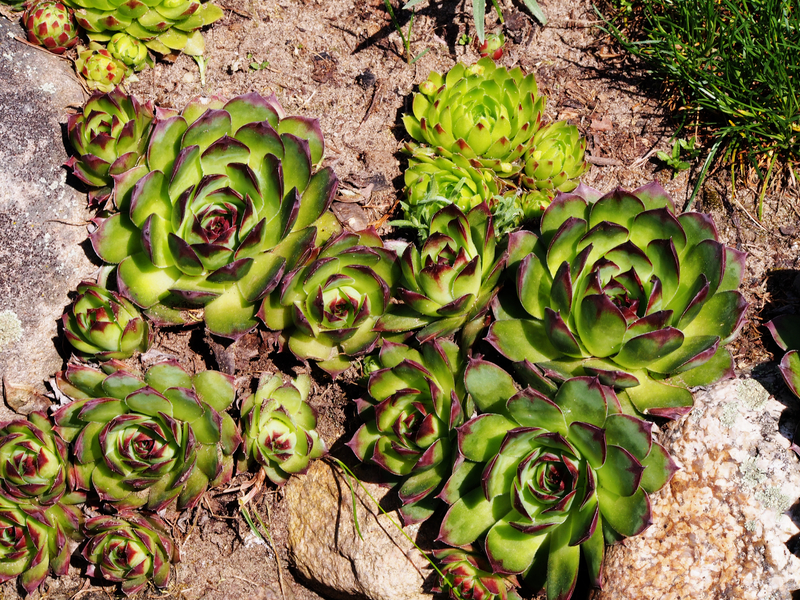Revitalize your garden into a peaceful Zen sanctuary
Posted on 07/06/2025
Revitalize Your Garden into a Peaceful Zen Sanctuary: A Comprehensive Guide
Transforming your outdoor space into a tranquil retreat is more than just landscaping--it's about creating a harmonious environment that nourishes your mind, body, and soul. If you've ever longed for a personal haven that exudes serenity and calm, revitalizing your garden into a peaceful Zen sanctuary might be exactly what you need.
What is a Zen Garden?
Zen gardens, also known as Japanese rock gardens or "karesansui," are traditional landscapes designed for contemplation and meditation. Characterized by their minimalist aesthetic and careful arrangement of natural elements, these gardens evoke a sense of balance and peace.
- Simple design - minimalism is key to fostering calm
- Natural materials - stone, sand, gravel, and wood predominate
- Symbolism - each element often represents natural landscapes
- Tranquility - designed to inspire reflection and mindfulness

Why Transform Your Garden into a Zen Sanctuary?
Modern life is filled with distractions, noise, and stress. Creating a peaceful Zen sanctuary in your backyard offers a private oasis where you can unwind, meditate, and connect with nature. Not only does a Zen-inspired garden bring beauty and order to your outdoor space, but it also contributes to your overall well-being by:
- Reducing stress levels
- Enhancing mindfulness and concentration
- Fostering relaxation and improved mental clarity
- Increasing property value with unique landscaping
Step-by-Step Guide to Revitalize Your Garden into a Zen Sanctuary
1. Planning Your Zen Oasis
Before diving into design, spend time visualizing your ideal garden sanctuary. Consider the following:
Location: Will your garden be in full sun, shade, or partial sun? Choose a spot that feels secluded and away from the hustle and bustle.Purpose: Do you want a meditation area, a space for tea ceremonies, or simply an escape for reading and relaxing?Size and shape: Zen gardens can be large or small--a balcony or a sprawling backyard can both become tranquil sanctuaries.
Sketch your ideas, considering existing plants and features. Setting your intention at this stage will help guide every choice you make.
2. Elements of a Zen Sanctuary Garden
To revitalize your garden into a Zen-themed sanctuary, incorporate key elements grounded in Japanese aesthetics:
- Rocks and Stones: The backbone of any Zen garden, stones symbolize mountains, islands, or animals. Arrange large stones upright for vertical interest, surrounded by smaller rocks to suggest flowing landscapes.
- Gravel or Sand: Used to represent water, sand or fine gravel should be raked in waves or circles for a soothing, meditative effect.
- Water Features: While not all Zen gardens include actual water, many use small ponds, streams, or bamboo fountains ("shishi-odoshi") to introduce the calming sound of running water.
- Plants: Choose simple, evergreen, and low-maintenance species. Bamboo, moss, ferns, Japanese maples, and pines are excellent choices for achieving that Zen quality.
- Paths: Stone or gravel paths meandering through your garden invite gentle exploration and reflection.
- Ornaments and Statues: Minimalist lanterns, buddha statues, or simple benches give functional beauty to your sanctuary without overwhelming its simplicity.
3. Choosing the Right Plants
Plant selection is crucial in crafting a truly peaceful Zen sanctuary garden. Select flora emphasizing texture, shape, and timelessness over garish color. Here are some must-haves:
- Bamboo - Symbolizes strength and flexibility; creates natural privacy
- Moss - Fosters softness and unity; thrives in moist, shaded areas
- Japanese Maple (Acer palmatum) - Offers graceful forms and subtle color changes
- Ferns - Add texture and a primeval atmosphere
- Black Pine (Pinus thunbergii) - A classic choice for structure and shade
Keep plantings sparse and uncluttered, focusing on the calming power of green hues and gentle motion.
4. Creating Structure and Flow
The layout of your Zen-inspired sanctuary should encourage a slow, contemplative journey. Achieve this with:
- Asymmetry: Avoid rigid symmetry; instead, use odd numbers of objects and staggered placements.
- Defined zones: Designate spaces for sitting, strolling, or meditating.
- Enclosure: Bamboo screens, hedges, or stone walls give privacy and focus attention inward.
Remember, every detail should align with your larger goal of tranquility and simplicity.
5. Building a Meditation Space
To truly revitalize your garden into a tranquil Zen haven, set aside an area for meditation or quiet reflection. Consider the following ideas:
- A stone bench nestled among bamboo groves
- A simple wooden deck overlooking a raked gravel area
- A sheltered alcove with tatami mats or meditation cushions
Keep furnishings low, understated, and in harmony with the rest of your garden.
6. Incorporating Water and Sound
Sound is a subtle yet powerful contributor to creating a peaceful Zen garden sanctuary. The presence of water--however small--can transform your space:
- Install a bamboo fountain (shishi-odoshi), which creates a soothing, rhythmic clack as it tips back and forth.
- Build a small pond or use a water bowl as a focal point.
- Let rain trickle down stone paths or river rocks--the natural sounds encourage mindfulness.
Wind chimes, made of bamboo or metal, can also add peaceful, melodic tones.
7. Lighting for Ambience
Evening light in a Zen-inspired retreat should be understated and warm. The right lighting will subtly highlight garden features and prolong the tranquil mood:
- Solar lanterns along pathways
- Hidden LED up-lighting to accent trees or statues
- Traditional stone lanterns for authentic ambiance
Avoid harsh floodlights or colored bulbs that disturb the sanctuary's restful feeling.
Sustainable and Low-Maintenance Zen Gardens
True Zen gardens are as easy to care for as they are beautiful. Here are tips to ensure your peaceful garden sanctuary remains sustainable:
- Choose native and drought-resistant plants that require less water and maintenance.
- Use organic mulch to suppress weeds and retain moisture.
- Install rain barrels for eco-friendly watering.
- Opt for LED or solar lighting to minimize energy use.
- Limit lawn areas in favor of gravel or groundcover for less mowing and watering.
Maintaining Your Zen Sanctuary
Ongoing care enhances the meditative process, but it doesn't have to be extensive. Some gentle Zen garden maintenance includes:
- Regularly raking gravel or sand for fresh patterns
- Trimming plants for neat silhouettes
- Wiping benches or lanterns to remove debris
- Refreshing mulch and checking pathways for safety
This mindful, hands-on maintenance is a meditation in itself--contributing positively to your mental well-being.

Personal Touches: Making Your Zen Garden Unique
Your Zen-inspired sanctuary should reflect your personality and provide a refuge for your soul. Here are ideas for personalizing your space:
- Add a tea ceremony nook with a low table and cushions
- Hang haiku poetry plaques on fences or trees
- Plant a small herb or bonsai corner for hands-on engagement
- Install a hammock for gentle napping or reading
- Place stepping stones engraved with inspirational affirmations or words
Engaging the Senses
While a Zen sanctuary garden is primarily visual, don't neglect the other senses:
- Scent: Add fragrant jasmine, mint, or pine needles.
- Sound: Encourage birds with feeders or keep a small bell for mindful rituals.
- Touch: Include soft moss areas or smooth pebbles for tactile stimulation.
Conclusion: Your Journey to a Peaceful Zen Sanctuary
Transforming your garden into a peaceful Zen sanctuary is a rewarding journey--one that nurtures both your environment and your spirit. By embracing simplicity, balance, and natural beauty, you create a space that offers daily opportunities for calm, reflection, and well-being.
Start small, stay inspired, and let the process itself become an act of mindful rejuvenation.
Ready to revitalize your garden into a tranquil Zen haven? With careful planning, thoughtful plantings, and attention to peaceful details, you can enjoy a personalized sanctuary for years to come--a true masterpiece of nature, harmony, and peace.
Latest Posts
Shade-Tolerant Evergreen Climbers: A Solution for Dark Spaces
Ensuring Longevity in Your Orchids
Discover the Best Techniques for Shaping Impressive Hedges

